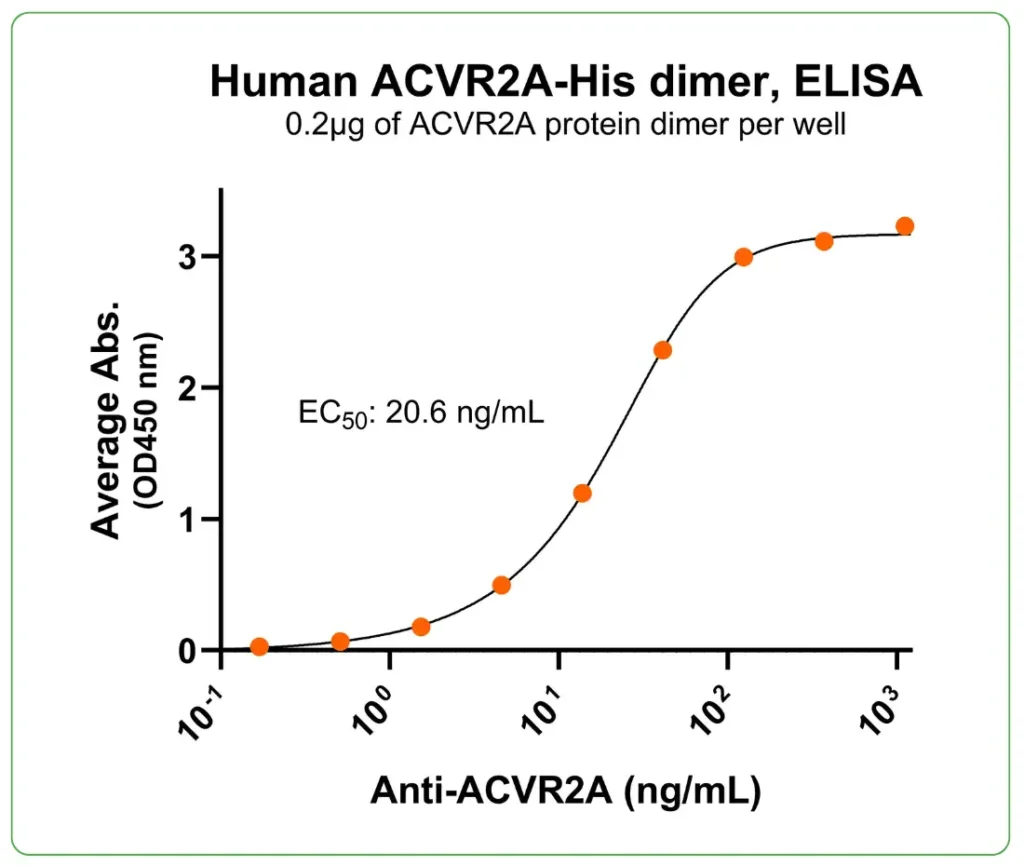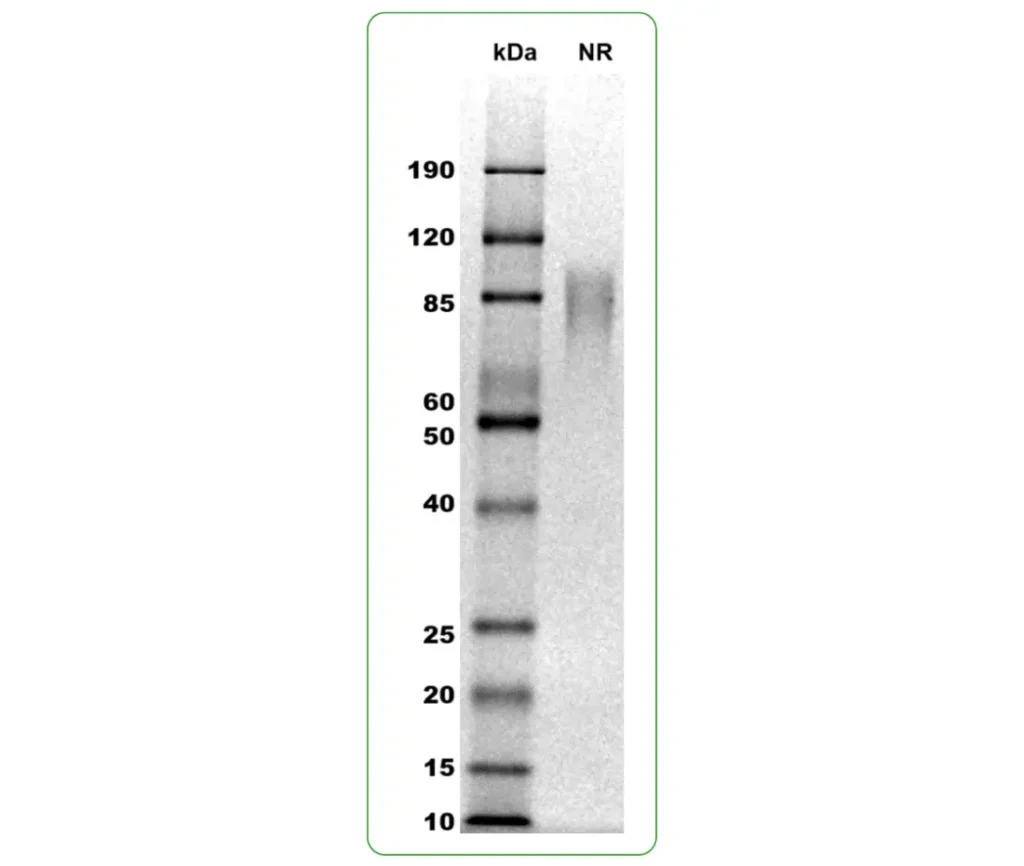Human ACVR2A Protein Dimer, His Tag
| Product Code | CSP-25144-03 |
| Expression Host | HEK293T |
| Verified Applications | ELISA for ACVR2A-specific antibody binding assays. |
| Suggested Applications | SPR & BLI for ACVR2A-specific antibody protein binding assays. Animal immunization, RUO. |
| Purity | Greater than 90% dimer form as determined by SDS-PAGE under non-reducing condition |
| Amino Acid Range | A20-P135 |
For Research Use Only (RUO)
Price: $125.00
Price: $195.00
Price: $350.00
Price: $750.00
Price: $2,500.00
Bioactivity – Antibody Binding
Immobilized human ACVR2A protein dimer, His Tag (CSP-25144-03) at 2 μg/mL (100 μL/well) can bind anti-human ACVR2A monoclonal antibody with half maximal effective concentration (EC50) range of 10.3-41.1 ng/mL (QC tested).
SDS-PAGE
NR: ACVR2A dimer under non-reduced condition
Specifications
Formulation: 0.22μm filtered PBS, pH 7.4
Shipping: Frozen Dry Ice
Storage: -80°C
Human Activin receptor type-2A (ACVR2A) is a transmembrane protein belonging to the transforming growth factor-beta (TGF-beta) superfamily of signaling proteins. The recombinant ACVR2A dimer protein (CSP-25144-03) is a cis-homodimer (cis-dimer) and contains an ACVR2A extracellular domain (UniProt# P27037, amino acids Ala20-Pro135) fused with a proprietary cis-dimer motif followed by a His tag at the C-terminus. This dimeric protein is expressed in HEK293T cells. The recombinant human ACVR2A dimer protein binds ACVR2A-specific antibodies. This ACVR2A dimer can be used as an antigen for in vitro assays and antibody screening, and as an immunogen for immunization to generate antibodies targeting more conformational epitopes.
Protein Name: ACVR2A
UniProt #: P27037
Predicted Molecular Weight: 43 kDa
SDS PAGE Molecular Weight: The migration range of the dimer protein with glycosylation under non-reduced condition is 60-85 kDa on SDS PAGE.
Protein Construct: ACVR2A protein dimer contains an ACVR2A extracellular domain (UniProt# P27037) fused with a proprietary cis-dimer motif followed by a His tag at the C-terminus.
Background
Human Activin receptor type-2A (ACVR2A) is a Type I transmembrane protein belonging to the transforming growth factor-beta (TGF-beta) superfamily of signaling proteins. ACVR2A contains an extracellular domain composed of a ligand binding domain. It is a Type II serine/threonine kinase receptor and functions by binding ligands like activins, myostatin, and other TGF-β family members and forming receptor complexes activating the intracellular signaling pathway. ACVR2A interacts with inhibin beta A (INHBA) as well as myostatin, although to a lesser extent than ACVR2B. ACVR2A can form homodimers (ACVR2A–ACVR2A) or heterodimers (e.g., with ACVR2B). ACVR2A dimers are involved in regulating important biological processes such as cell growth, differentiation, development, and inflammation. Homodimerization, in particular, plays a pivotal role in the activin signaling pathway, which influences processes like tissue repair, muscle growth, and immune responses. Mutation or decreased expression of ACVR2A has been shown to play an important role in several cancers including prostate and colorectal. Therefore, a recombinant protein mimicking the ACVR2A dimer conformation can be crucial for basic and translational research as well as ACVR2A-targeting therapeutic discovery.
Alternate Names: ACTRII, ACVR2, activin A type II receptor


